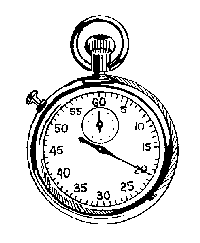Stand-Up Meeting
A stand-up meeting is a quick team gathering to make sure that the day is properly planned out. Topics generally include the current day’s goals and issues, previous day’s results, ongoing project status, and anything special on the agenda. The stand-up meeting is part of a daily management program, and Read more…
Savings
Continuous improvement focuses on cost reduction—the actual dollar savings that increase profit. The term “savings”, though, has many nuances to it. Hard savings vs. soft savings. Hard savings are the ones with a specific invoice, credit card statement, or payroll expense associated with it. Soft savings are the ones that Read more…
Sensors
Sensors are mechanical devices that are sensitive to their environment, and that communicate information about what they detect. Sensors can detect pressure, temperature, speed, and a host of other things. Sensors are commonly linked to either an alarm of some sort (a buzzer when a seat belt is not fastened), Read more…
Scientific Method
The scientific method is one of many problem solving techniques. There are 5 basic steps to the scientific method. Observation: Gather facts and data about a situation. Form a hypothesis: In this step of the scientific method, the user makes a statement about what is happening and why. In effect, Read more…
Spaghetti Charts
A spaghetti chart is a visual depiction of the flow of a person through their workstation. The spaghetti chart may also be used to depict the flow of information and materials as well. Typically, the chart is done on a Standard Work Sheet, mostly out of convenience. The sheet may Read more…
Scope
The scope is the boundary of something in business. It may apply to an agreement, contract, set of responsibilities, or project. The scope defines what is covered and what is not. In Lean, the scope is most commonly used to refer to the boundary of what a project will cover. Read more…
Surveys
There are many ways to learn about your customers, vendors, or employees. You can watch how they behave. You can do research or purchase data about them. You can analyze the data you already have. Each of these, though, is somewhat passive, and thus limits the information you can gather. Read more…
Safety
Safety is freedom from injury and harm. The most obvious freedom is from immediate bodily injury. Safety switches, gate, guards, etc. help provide this, as does proper training and well-designed processes. Safety also includes freedom from chronic conditions that accumulate over time. This includes things like repetitive stress injuries, and Read more…
Skew
Skew, in layman’s terms, means that data is distorted. The data points don’t fall evenly around the center of a distribution. Consider this example. Assume ten people are in a room, and you want to know what their average household income is. If this was a typical cross section of Read more…
Seasonality
Seasonality is the regular pattern of peaks and valleys related to the time of year. Seasonality may be due to weather. Umbrellas, for example, sell best in rainy seasons; skis sell best in the winter. Seasonality may also be due to recurring annual events and holidays. Christmas means toy sales Read more…
Stopwatch
Everyone, of course, knows what a stopwatch is. They may not, though, understand why someone is standing over them with one. In a Lean company, processes are based on facts and data. One of those facts is the time it takes to accomplish a task. Unfortunately, people who are highly Read more…
